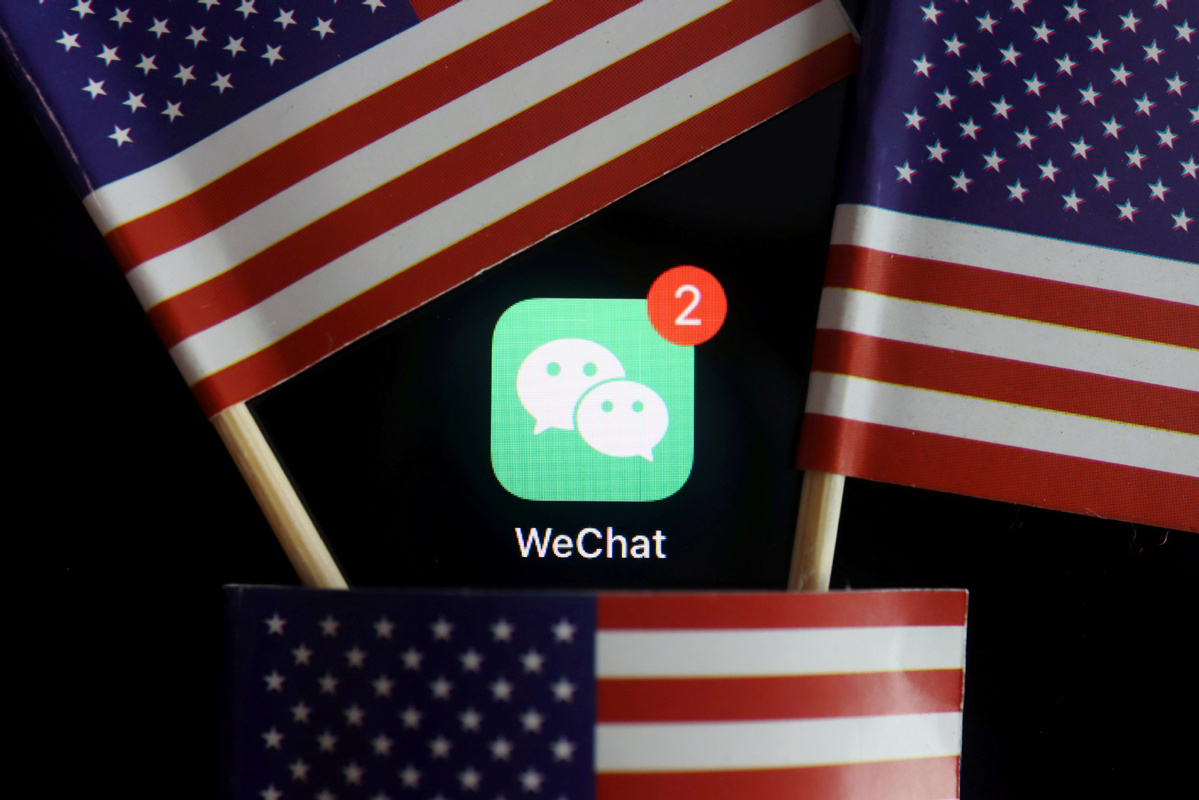
The messenger app WeChat is seen among US flags in this illustration picture taken Aug 7, 2020. [Photo/Agencies]
After days of hearings, a US judge on Sunday temporarily blocked the proposed ban on WeChat downloads, hours before it was due to take effect, granting a "motion for a nationwide injunction against the implementation" due to concerns over free speech.
The plaintiffs argued that WeChat is irreplaceable for its users in the United States, particularly those in the Chinese-speaking and Chinese-American community.
The US Commerce Department had issued the Identification of Prohibited Transactions on Friday, which would have resulted in US consumers in the US being unable to download or update the WeChat app and while it would perhaps still be technically available to existing users, it would, as the judge noted in her ruling, likely be useless to them due to the elimination of data hosting and content caching.
The US administration's bid to take down WeChat purportedly on the grounds of national security has been prompted by the app's popularity. Owned by the Chinese technology giant Tencent, WeChat has around 19 million active daily users in the United States.
With its claims that Chinese technology companies and their products "endanger national security", the US administration has proved time and again that business is not just business. It is because they have developed fast enough and well enough to do well in the competition with their US peers that Chinese technology companies and their products have become targets for the US authorities.
For instance, the Department of Justice said that even if WeChat is banned, individuals downloading and using it will not incur criminal or civil punishment which does not support the president's executive order prohibiting any transaction related to WeChat by any person, or with respect to any property, subject to the jurisdiction of the United States, on the grounds it represents a threat to national security.
And even a Commerce Department official told the media the ban did not cover individuals as the target is "enterprises" — which, as should be evident to everyone by now, means Chinese enterprises.
If that is not clear enough, that the Commerce Department in its enforcement regulation has brazenly bestowed on itself the power to change the definition of "transaction" without notification should have hammered home what the essence of the US administration's WeChat ban is — to seize the initiative by pressing the "oil" from Chinese enterprises.
In doing so, the US administration has made known to all what a scoundrel it is.


